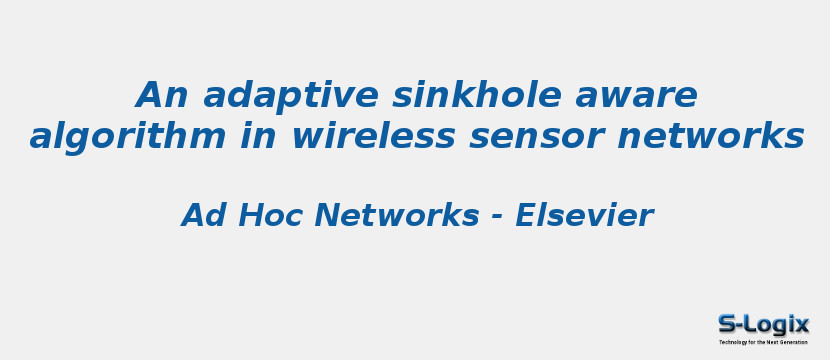Research Area: Wireless Sensor Networks
In Wireless Sensor Networks (WSNs), nodes collectively collaborate to sense the environment and inform the base station. Sinkhole attack aims at attracting the traffic of nodes in its vicinity by advertising itself as the shortest path to the base station, and hence disturbs the functionality of such networks. We propose a distributed adaptive framework based on the subjective logic and probabilistic extension of timed automata to reason about the probability of each node being affected by sinkhole attacks. The outcome is announced to the nodes to adjust the probabilities of their next hops in the probabilistic extension of AODVv2-12 routing protocol to route packets over the most reliable nodes. The subjective logic models at the base station compute the probabilities iteratively based on positive and negative observations about the behaviors of nodes collected by the distributed monitor nodes or received data packets. To adaptively tune the parameters of positive and negative observations, an abstract probabilistic model based on timed automaton that captures the behavior of the whole network is generated at the runtime in the base station. The combination of the formal models results in an effective adaptive algorithm, robust to the dynamism of network, with low packet loss rate as the routes are selected over the reliable nodes. Furthermore, the false positive and false negative results reduce as the network converges.
Keywords:
Author(s) Name: Ghazaleh Jahandoust and Fatemeh Ghassemi
Journal name: Ad Hoc Networks
Conferrence name:
Publisher name: ELSEVIER
DOI: 10.1016/j.adhoc.2017.01.002
Volume Information: Volume 59, 1 May 2017, Pages 24-34
